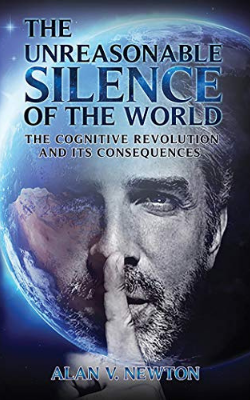Intellectually-stimulating, witty, and presents the subject in great detail. The main strength of this book is its breadth of scope: it covers an impressively wide range of scientific journals and accounts, and explains the subject from a new perspective that we haven’t heard before
Our cognitive ability can be traced back to the times of early hominids in the African continent, and the main question is – what seems to be the process that has increased the cubic capacity of our brain and how we have evolved as the most powerful organism on the planet: This is still a mystery. Contrary to common beliefs that it’s all about biological survival, it seems more likely that, counter-intuitively, the processes also responsible for mental illness, have played an important part. This is one answer to the mystery.
Psychotic genes may have made the major contribution to what are known as cultural systems, a form of distancing from reality that, it is claimed, has played a significant part in the astonishing survival of Homo Sapiens, when all other hominids failed to make it to the present day. The cognitive revolution is widely recognized as initiating the cultural period and one approach to its formation is through the arrival of genes that, in excess, are also responsible for mental illness.
Newton has intensively mapped the progress from the earliest known homo sapiens or caveman, using various accounts to support his ideas in a different perspective of what seems to be a plausible explanation of the cognitive revolution which began over a time scale of a mere 100,000 years! Moreover, he stresses that psychotic genes, when inherited in excess, are responsible for psychotic conditions like schizophrenia, one cause of which is an interference in the self system’s ability to control thoughts and actions. This explains its wide ramifications and idiosyncratic symptoms and, of course, places it as a problem of the human condition rather than a medical condition. It is also suggested that the genetic rearrangements occurring at the cognitive revolution may have considerably refined any existing communications system allowing the development of verbally based mythologies. The inclusion of schizophrenia as part of the human condition may help to explain how it is that schizophrenia affects the families of high achievers – the great, the clever, the rich, the ambitious, the intellectual, and the creative, who have shaped the modern world.
It is also claimed, neurologically, in respect of the modern world, that the cognitive and, particularly the agricultural revolutions, marked a very gradual erosion of right hemisphere dominance that was in accord with the hunter-gatherer lifestyle. Owing to dramatic environmental changes over the last 10,000 years, and particularly the last 2,500 years, the left hemisphere has played a greater part in us ending up using logic, mathematics and technological creativity, although in respect of the last quality, creativity, the right brain, under the control of the left, has been the essential agent. However, mythologies, as religions, are still with us indicating the huge and increasing cultural diversity characteristic of the minds of men and women in the modern world.
Alan V. Newton presents his ideas turning complicated subjects into, hopefully, a more amenable form. A commendable piece, comprehensive, and a well-prepared work.
The book is available on Amazon. Buy your own copy now!
Pub Date: February 28, 2019
ASIN: B07P97V45L
Page Count: 188
Publisher: Austin Macauley Publishers Ltd
Review Posted Online: February 28, 2019
Writera Magazine Reviews Issue: March 2, 2021
Categories: Politics & Social Sciences
